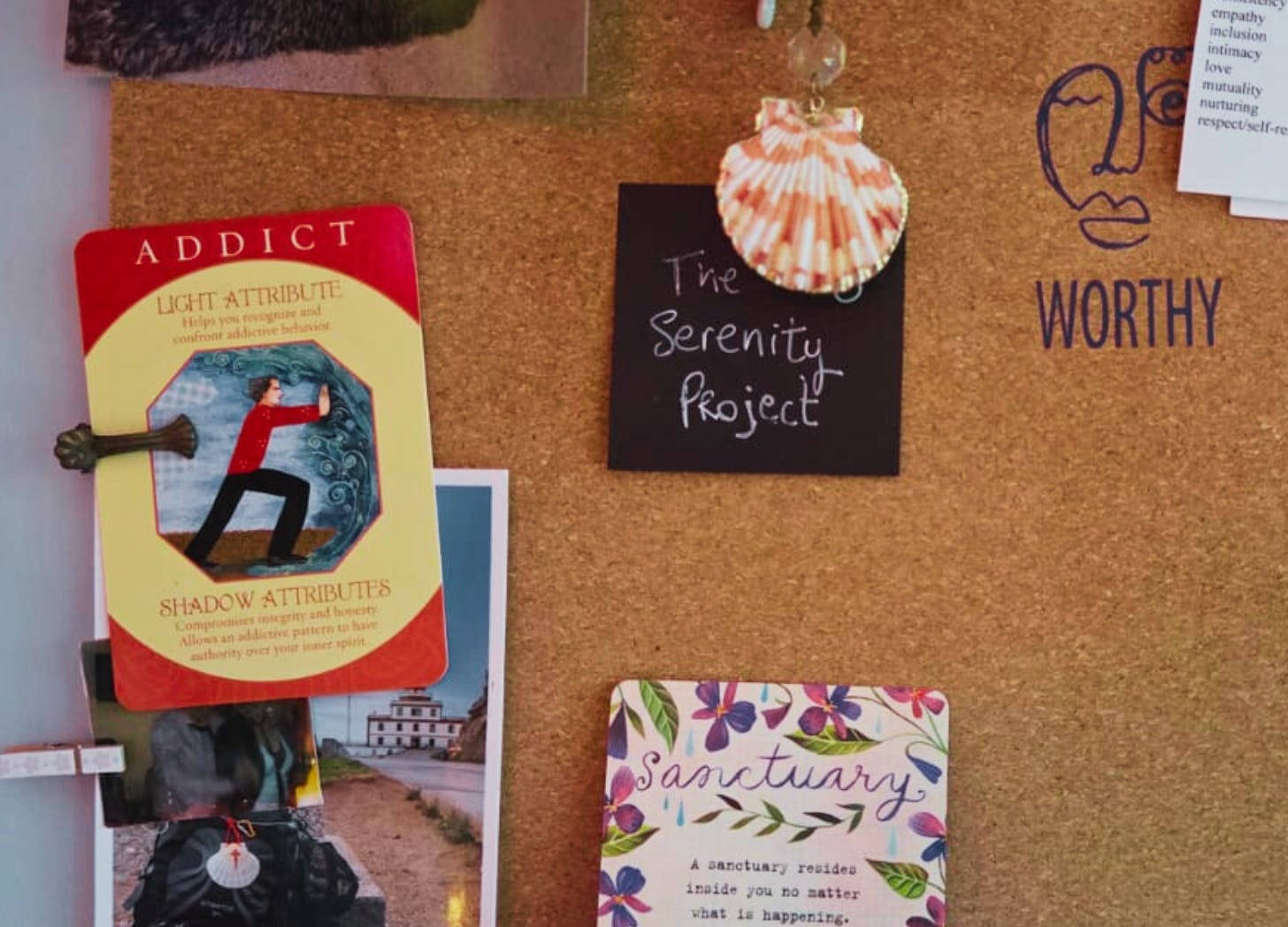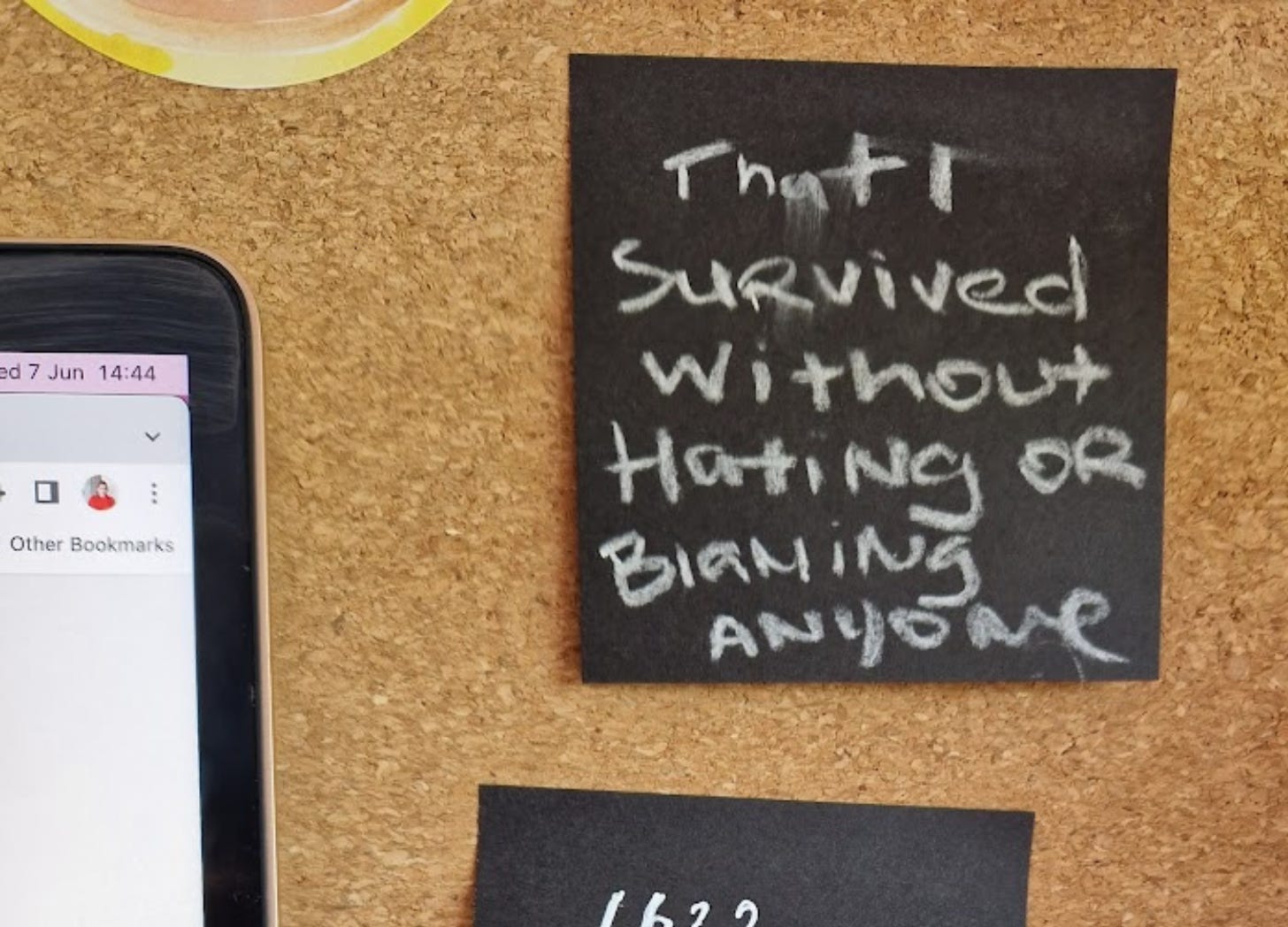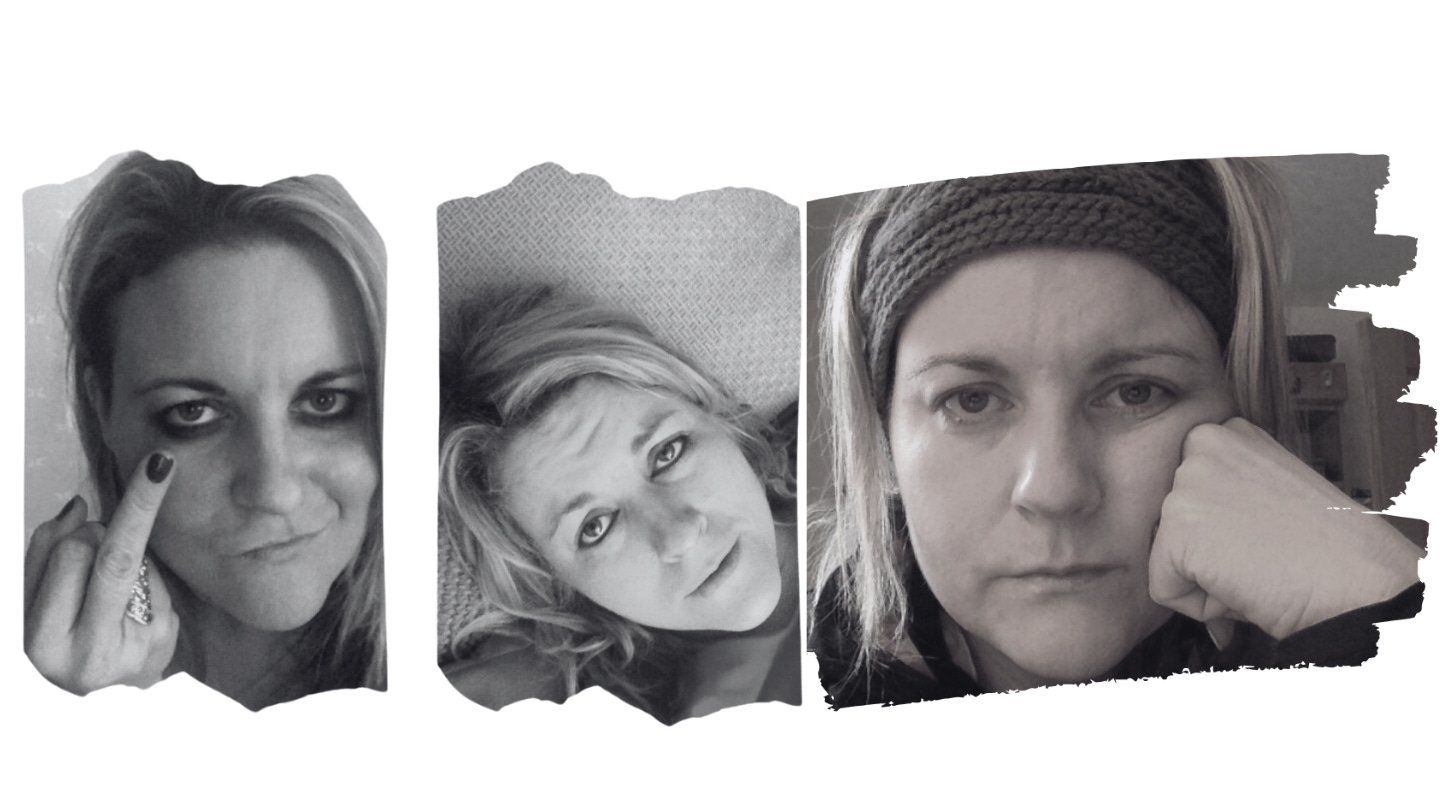"I Wish I Was an Alcoholic"
When "not being broken enough" becomes a barrier to healing
"I wish I was an alcoholic."
A client actually said that to me once.
Of course, she was being facetious, but behind her flippant humour was a very real longing.
She had witnessed first hand the transformation brought about through recovery; the peace, the clarity, the unshakeable sense of self, emerging from the rubble. The freedom. The Happiness.
It was everything she wanted for herself too.
But because she didn't identify as someone with the problem of addiction, because there was no rubble from which to emerge, she told herself that her struggles weren't valid enough to access the solution.
Imagine. My client’s not being an alcoholic was actually posing as a barrier to emotional freedom.
But this is what happens, we create this hierarchy of suffering where you need to have fallen far enough to "deserve" help.
My client was essentially telling herself: "My problems aren't dramatic enough, therefore I don't deserve the transformation."
It shouldn't be that way.
The Recovery Paradox
Here's what I started wondering. Have we accidentally created a system where some of the most powerful tools for emotional freedom are locked behind a requirement to identify as an addict?
You can be drowning in people-pleasing, emotional reactivity and the exhausting need to control everything around you, but unless you have a substance problem, you don't get access to the frameworks that could actually help.
It's like saying you can only learn to swim if you're currently drowning.
My client wasn't alone in feeling this way. I started to notice when I kept hearing variations on the same theme: "I wish there was an AA type thing for people who aren't alcoholics."
Women who could see that people in recovery had something they wanted; something that helped them create real, lasting change.
But felt shut out because they didn't tick the ‘addict’ box.
What Recovery Really Is
Here's what I've learned after over a decade of studying, counselling, coaching & teaching, eight years sober from alcohol and eighteen months working a 12-step program: the drinking was never the real problem.
The drinking was my solution. It was my answer to the chaos of my inner life.
Getting drunk, or high on substances and validation was how I coped with growing up in a culture that conned me into disobeying my own truth, diluting my own voice, deferring my own authority & denying myself dignity.
It was how I coped with the trauma of a lifetime of SELF erasure, abandonment & shame.
The loss of ownership and agency, the inability to surrender.
The real recovery? Learning to stop reaching outside myself for love, safety and approval.
Recovery is about accepting what you cannot control, changing what you can and developing the wisdom to know the difference.
It's about taking responsibility for your life without blaming anyone.
It's figuring out how to be disturbed without immediately trying to control the situation.
And you know what? You don't need to be an alcoholic to benefit from any of that.
The Patterns We All Recognise
Maybe you don't drink, but do you recognise yourself here?
You say yes when you mean no, then spend the week resenting everyone for not reading your mind about what you actually wanted.
Your emotions feel like they control you rather than inform you. Someone makes a dismissive comment and suddenly you're in a three-hour mental spiral about what they "really meant" by it.
Despite wanting peace, your life feels like a series of crises rather than something sustainable.
You exhaust yourself believing you must constantly entertain, impress, or provide value because you're terrified people will leave if you don't consistently prove your worth.
Sound familiar? Welcome to the human condition. We're all trying to manage the same basic struggles; we just use different methods.
What I'm Doing About It
That's why I created The Serenity Project. Because addiction & disorder shouldn’t be the only pathways to recovery.
Because the wisdom that saved my life should be available to anyone brave enough to admit they're seeking a better way to live.
I'm taking my knowledge & experience from various proven frameworks, like 12-step traditions, mindfulness-based recovery, trauma-informed approaches and holistic wellness, and making them accessible to everyone.
No labels required. No addiction diagnosis needed. Just the willingness to try something different.
What Emotional Freedom Actually Looks Like
The goal isn't perfection; it’s emotional sobriety. A state where you're no longer at the mercy of your feelings or controlled by external circumstances.
This looks like:
Living one day at a time instead of spiralling about the future or ruminating on the past
Accepting reality as it is, not as you wish it would be
Taking responsibility for your reactions without blaming others for your feelings
It's not about suppressing emotions. It’s not about ‘positive thinking’. It’s not about forcing yourself to believe things you think you should, but don’t.
It's about responding to the world’s chaos with wisdom instead of being ruled by it.
My Journey: From Chaos to Clarity
Fifteen years ago, these principles saved my life. They transformed me from someone controlled by chaos to a person who can maintain peace amid challenges, set boundaries without guilt, feel emotions without being overwhelmed, build and enjoy authentic, life affirming relationships.
These principles have also saved my sanity many times since and I do my best to live into them everyday.
I still stumble. I still get triggered by random things and have to catch myself mid-spiral. But I have tools now. I know how to find my way back to peace instead of staying stuck in resentment.
The Real Problem We're Solving
The problem isn't that you're broken or doing life wrong. The problem is that most of us were never taught how to be human.
We learned how to achieve, how to please, how to perform, but nobody taught us how to exist in discomfort without trying to fix it.
How to be disappointed without making it mean something about our worth. How to want something from someone and survive not getting it.
Recovery principles teach you all that.
The Invitation
You don't need to hit rock bottom to access or earn a right to these tools. You don't need to identify as an addict to benefit from this wisdom.
You just need to be tired of your own patterns and willing to try things that have been tested by millions of people over decades.
The transformation my client wanted? It's available to her. And to you. The question isn't whether you qualify; it's whether you're ready to stop trying to figure everything out alone and step out onto a proven path to emotional freedom.
Recovery isn't just for people with addiction. It's for anyone seeking transformation. The wisdom that saved my life is available to you too.
The thing is, most of us can't see our own patterns. We're too close to them.
We think the chaos just keeps happening to us instead of recognizing the unconscious choices that create it.
That's why I put together 5 Signs You're Unconsciously Choosing Chaos Over Peace; because sometimes you need someone else to point out what you can't see yourself.
Download it below and see which signs feel uncomfortably familiar. Let me know in the comments!






I’ve been in 12 Step for about 18 months. So much alignment 😘❤️